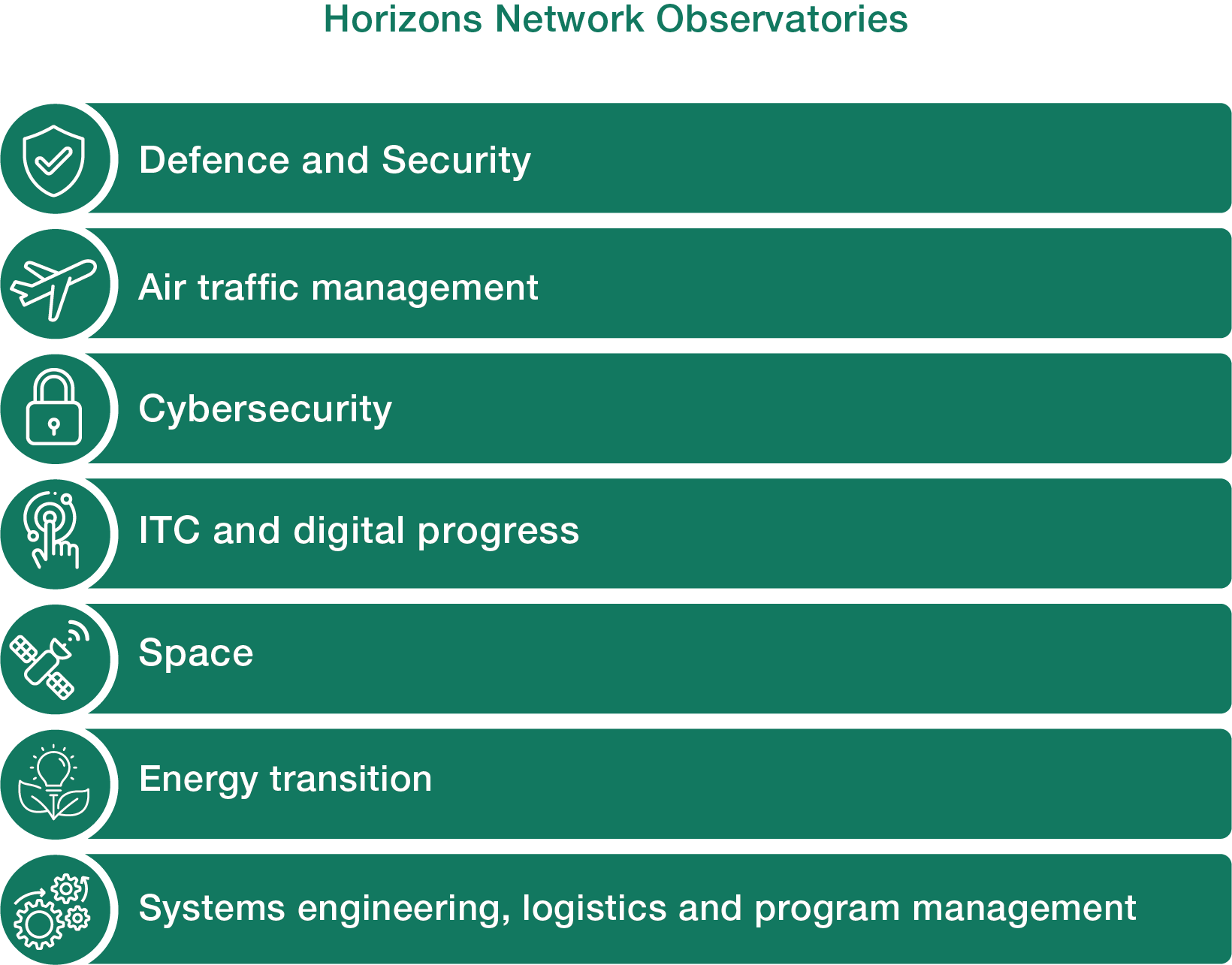Innovation
Innovation ActivitiesInnovation at Isdefe
Isdefe, as the in-house technical services provider of the General State Administration (GSA), promotes various innovation activities with the aim of gaining knowledge, anticipating the needs of the administration and improving engineering and consulting services in the company's areas of activity.
Innovation allows Isdefe to support the Public Administration in the challenges and opportunities it will face in the future.
In terms of sustainability, investing in innovation allows Isdefe to engage in technology foresight and monitoring, as well as to participate in projects in this area that develop proof of concept, prototypes, methodologies, and more. This investment results in the improved quality of the consulting and engineering services that Isdefe provides to the public administration, as well as to society in general.
The dissemination and exploitation of the innovation activities provides first-hand knowledge that allows us to anticipate the future and predict the opportunities and challenges that the Administration will have to face.
The Directorate of Business Development and, within it, the Department of Innovation, Processes and Digital Transformationis responsible for preparing, supervising and coordinating the implementation of innovation activities.
Innovation at Isdefe is planned and implemented around four areas of activity:
– Technology foresight and monitoring.
– Reinforcement of positioning.
– Promotion of a culture of innovation.
– Dissemination and exploitation of innovation results.
Technology foresight and monitoring
The Horizons Network is the programme around which technology foresight and monitoring activities at Isdefe are structured. Its primary goal is to identify future trends in Isdefe's areas of activity in order to train the company's staff sufficiently far in advance to respond quickly to the new challenges facing the GSA.
Identifies and exploits the existing sources of knowledge in the innovation ecosystem, lays out a range of areas of activity focused on both the workforce and the organisations of the AGE, and makes available to the organisation tools to promote a corporate culture of innovation.
Develops technology foresight and monitoring activities in areas of strategic interest to Isdefe,
mainly using the partnership between academia and Isdefe that is structured around technology
observatories.

Defence and Security Observatory
Air Traffic Management Observatory
Cybersecurity Observatory
ICT and Digital Progress Observatory
Space Observatory
This observatory is the result of the work carried out as part of the Isdefe-UC3M Chair in Space with the Department of Aerospace Bioengineering at the Advanced Polytechnic School. The observatory conducts foresight exercises in quantum technologies applied to the space sector, space monitoring and ground observation.
The main areas of research of the Space Observatory in 2021 were optical communications and quantum cryptography.
Systems Engineering, Logistics and Programme Management Observatory
Energy Transition Observatory
Reinforce the position of Isdefe through innovation
Participation in European innovation projects
Isdefe continues to consolidate its participation in European programmes, such as Horizon 2020, SESAR and EUSPA. In 2021, Isdefe was involved in the innovation projects shown below:
USEPE – U-space separation management service
Role: Isdefe leader of the consortium.
INVIRCAT – IFR RPAS Control in Airports and TMA
Role: Isdefe member of the consortium.
IMHOTEP – Integrated Multimodal Airport Operations for Efficient Passenger Flow Management
Role: Isdefe member of the consortium.
PJ04 W2 TAM – PJ04 W2 Total Airport Management
Role: Isdefe, partner entity of ENAIRE.
PJ13 W2 ERICA – Enable RPAS, Insertion In Controlled Airspace
Role: Isdefe, partner entity of ENAIRE.
COPKIT - Technology, training and knowledge for Early-Warning / Early-Action led policing in fighting Organised Crime and Terrorism
Role: Isdefe leader of the consortium.
MEDEA - Mediterranean practitioners’ network capacity building for effective response to emerging security challenges
Role: Isdefe member of the consortium.
PROMENADE - Improved maritime awareness by means of AI and BD methods
Role: Isdefe member of the consortium.
NESTOR - An enhanced pre-frontier intelligence picture to safeguard European borders
Role: Isdefe member of the consortium.
Digital transformation in the company
Migration to to collaborative tools initiated in order to create, access, and share documents and information in real time anytime, anywhere through the cloud..
Migration of corporate mail to a new, modern, efficient and secure multi-device platform, with large storage mailboxes and hosted on the web.
Formal documentation of the processes identified within each functional area through a unique methodology, for subsequent analysis, optimisation and automation, in order to constantly improve said processes.
Improvement, optimisation and enhancement of the company's integrated management tool hours, billing, projects, etc.), eliminating manual operations and avoiding duplicate or contradictory data, automatically enhancing the performance of certain functions.
Continued issuance of certificates to employees, while extending the use of Electronic Signatures as a means to sign documents electronically.

